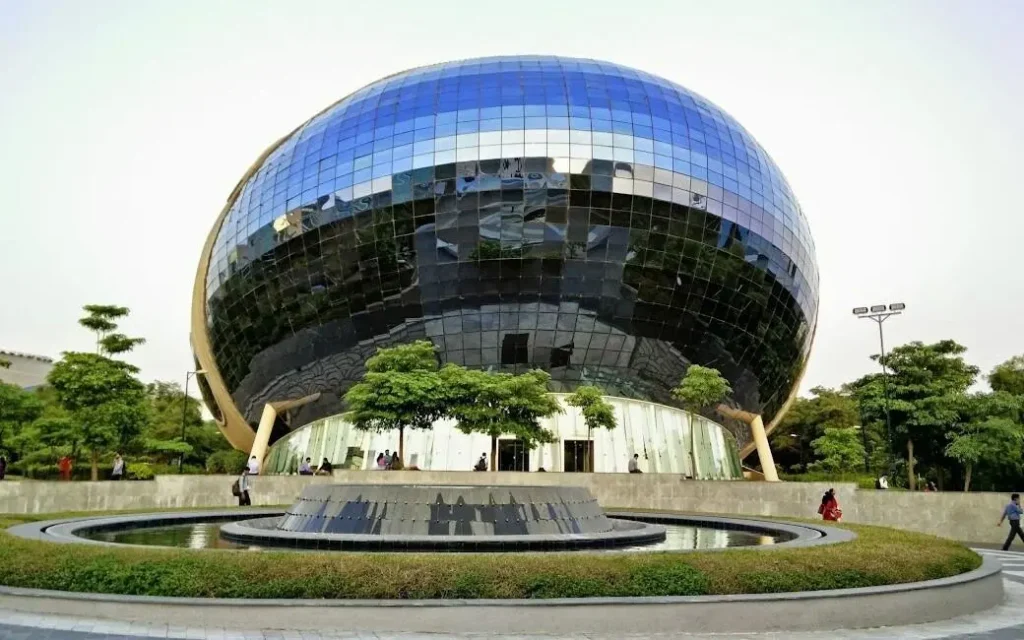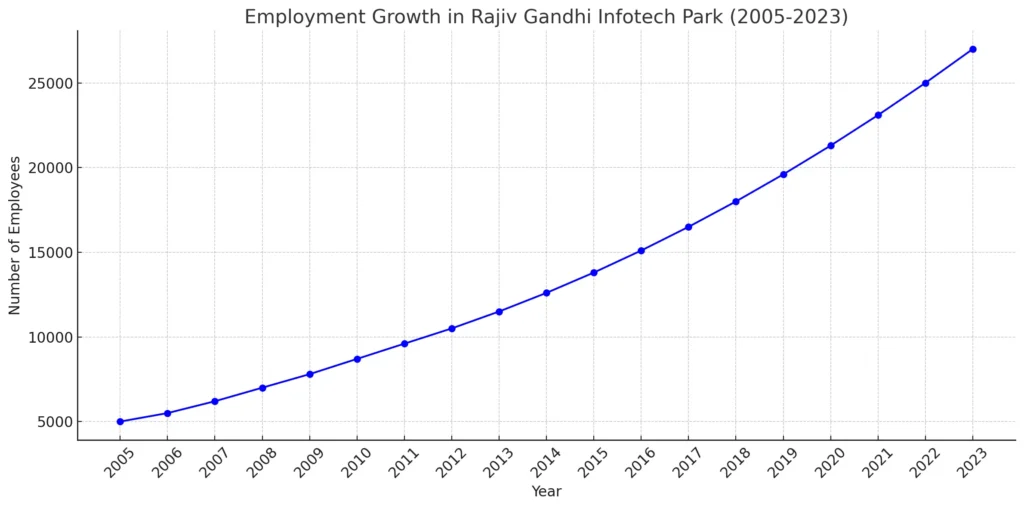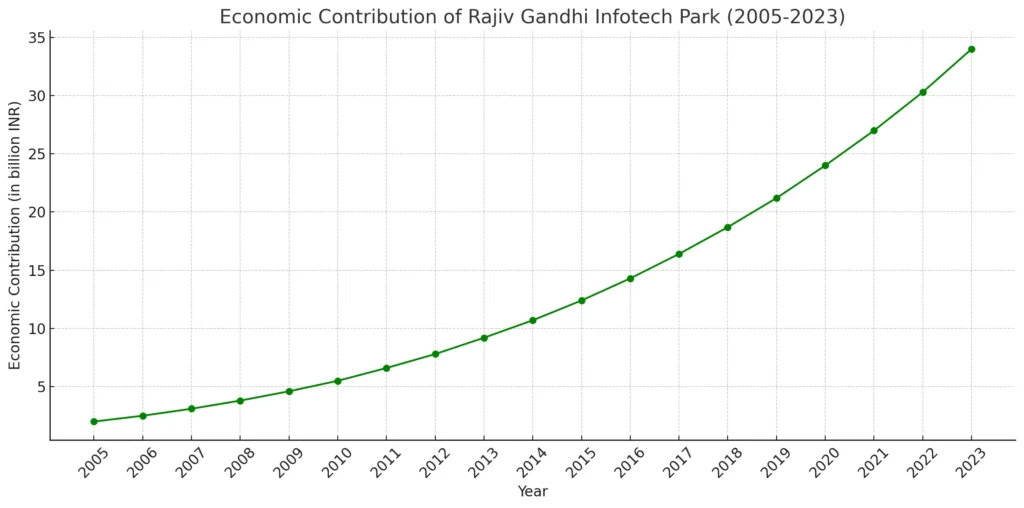
Introduction
Rajiv Gandhi Infotech Park, also known as Hinjawadi IT Park, is one of India’s most prominent technology hubs. Located in Hinjawadi, Pune, this sprawling campus has become synonymous with innovation, housing some of the world’s leading technology firms. With its state-of-the-art infrastructure and strategic location, the park has significantly contributed to Pune’s emergence as an IT powerhouse. This blog highlights the history, evolution, and impact of Rajiv Gandhi Infotech Park, providing a comprehensive overview of its significance.
Location
Located in the western part of Pune, Rajiv Gandhi Infotech Park is strategically located to leverage the city’s connectivity and infrastructure. Hinjawadi, where the park is located, is about 20 kilometers from Pune’s city center and is well connected by road and public transport. Its proximity to the Mumbai-Pune Expressway further enhances its accessibility, making it a preferred destination for both national and international businesses.
About Rajiv Gandhi Infotech Park
Growth and Infrastructure
Rajiv Gandhi Infotech Park was established in 2003, envisioned as a catalyst for economic growth and technological advancement in Pune.
The park is divided into three phases:
Phase I: The first phase is home to several multinational companies and has the best infrastructure, including well-maintained roads, green spaces, and modern amenities.
Phase II: The second phase expands the first phase, adding more office spaces, residential areas, and recreational facilities to support the growing workforce.
Phase III: This phase focuses on further expansion and includes advanced infrastructure, sustainable development practices, and improved connectivity.
Companies and Employment
Rajiv Gandhi Infotech Park houses an impressive range of global IT giants and homegrown companies. Some notable names include:
- Infosys
- Wipro
- Tata Consultancy Services (TCS)
- Cognizant
- Accenture
- IBM
These companies collectively employ thousands of professionals, making Hinjewadi a bustling hub of activity. The park’s growth has fueled job creation, leading to a significant influx of skilled workers into the area.
Table: Major Companies in Rajiv Gandhi Infotech Park
| Company Name | Industry | Phase |
|---|---|---|
| Infosys | IT Services | Phase I |
| Wipro | IT Services | Phase I |
| Tata Consultancy Services (TCS) | IT Services | Phase II |
| Cognizant | IT Services | Phase II |
| Accenture | Consulting | Phase III |
| IBM | IT Services | Phase III |
Employee Reviews and Work Culture
Employees at Rajiv Gandhi Infotech Park often highlight the vibrant work culture, excellent amenities, and commitment to sustainability of the park. The presence of recreation areas, fitness centers, and eateries contribute to a balanced work-life environment. Online reviews on platforms such as Glassdoor and Indeed often praise the park’s green initiatives, such as rainwater harvesting and energy-efficient buildings.
Partner Companies and Collaborations
Rajiv Gandhi Infotech Park fosters a collaborative ecosystem by partnering with various academic institutions, startups, and industry bodies. These collaborations aim to promote innovation, research, and development. The park’s proximity to premier institutions such as the Indian Institute of Technology (IIT) Pune and Symbiosis International University facilitates knowledge exchange and attracts talent. Startups such as Expressbees and FirstCry have benefited from the supportive environment and set up their operations within the park.
Economic and Social Impact
Economic Growth
The establishment of Rajiv Gandhi Infotech Park has had a profound impact on Pune’s economy. The arrival of IT companies has attracted significant investments, boosting the growth of local businesses and infrastructure. According to a report by the Maharashtra Industrial Development Corporation (MIDC), the park has generated revenues of over $4 billion annually.
Graph: Employment growth at Rajiv Gandhi Infotech Park (2005-2023)

Social development
Beyond the economic benefits, the park has contributed to the social development of the region. Improved infrastructure, better healthcare facilities, and educational institutions have enhanced the quality of life of residents. The creation of jobs has also increased disposable income, boosting the local economy.
Chart: Economic contribution of Rajiv Gandhi Infotech Park

Future prospects
The future of Rajiv Gandhi Infotech Park looks promising, with plans for expansion and the introduction of cutting-edge technologies. Initiatives such as the Smart City project, which aims to integrate advanced digital and IoT solutions for urban management, and sustainable development practices are expected to further enhance its status as a leading technology hub. Additionally, the park aims to attract more startups and small businesses, thereby promoting entrepreneurship and innovation.
Conclusion
The Rajiv Gandhi Infotech Park is a testament to Pune’s evolution as a technology-driven city. Its state-of-the-art infrastructure, strategic location and conducive work environment have made it a preferred destination for IT companies from around the world. As the park continues to grow, it will continue to form the backbone of India’s tech landscape, driving economic growth and fostering innovation.
